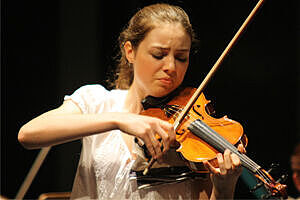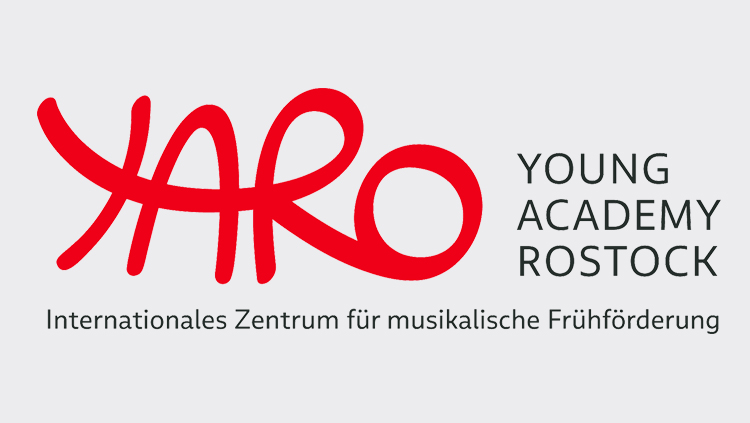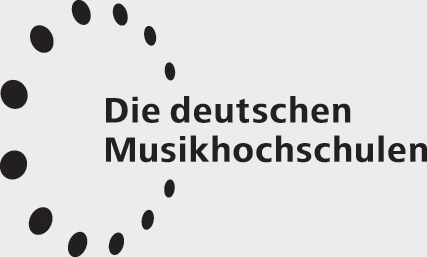Bachelor's Course Pop and World Music with Classical Music (Piano, Guitar, Bass, Saxophone, Drums, Voice)
Course profile
The “Pop and World Music with Classic” course is available in two forms:
- a vocal course for singers
- an instrumental course for guitarists, bass players, pianists, saxophonists and percussionists.
What makes this course at hmt Rostock so special is that the main subject focuses not only on pop styles, but is almost equally weighted towards classical music! This makes the course the only one of its kind in Germany.
- Official length of the programme: four years, 240 ECTS-credits
- Start of the course: summer semester as well as winter semester
- Application period: 1 October to 15 November for the summer semester. 1 March to 15 April for the winter semester.
- Teaching Language: German. Minimum requirement for foreign students whose native language is not German: B2
- University Degree: Bachelor of Music
- Teachers
You are keen to make music your career.
Perhaps you’re not yet sure what style you prefer… focusing solely on “classical” music might be too monotonous, concentrating on pop, rock, jazz or other styles might be too superficial…so you are looking for a course which combines a lot of different things.
Or, after many years spent playing in various bands, you may suddenly find that studying classical music would open up a whole new horizon!
You have already…
... undergone a lengthy period of musical training in guitar, piano, bass, saxophone, percussion or singing, for example in the classical style, and have also gained experience in the pop, rock or jazz genres.
Or was it the other way round…? No matter!
You would like to…
... … explore and improve your vocal or instrumental skills – in any style.
You would also like to improve your knowledge of music, music history, instruments etc. and acquire the necessary theoretical basis.
What’s more…
... … you want to work creatively as a musician, compose your own music…
… and of course keep with the times by using computer sequencing and music printing programs, compile your own playbacks, gain your first studio experience by recording your own songs…
You could also imagine…
... … working as a music teacher, and are therefore looking for an excellent course of training.
You want to teach your future pupils a repertoire encompassing all kinds of music from Wolfgang Amadeus Mozart to Billy Joel, from George Frideric Handel to Ivan Lins or from Cole Porter to Yousson N'Dour, to name just a few examples.
We want…
…to encourage everyone who wants to undergo an extensive course of study in “Pop and World Music” and expand their musical horizons by undergoing a course of classical training to apply to hmt Rostock.
This course will open up additional career opportunities on the freelance market, because you will be able to do justice to many different musical genres, giving you a versatility which will put you in great demand.
Most graduates also work as music teachers; the solid educational foundation we offer is excellent preparation for this type of work.
Applicants will be examined in their main subject, i.e. in pop and classical music; the aptitude test will also evaluate their knowledge of music theory and aural training. They must also give a short performance at the piano, even if they are not primarily pianists.
Please apply via our application website by uploading the required documents and application video by 15th of April for the next winter semester and 15th of November for the next summer semester.
In order to take part in the aptitude test part 1, you need to submit your application as well as two videos according to the regulations of the study course you are applying for.
In order to take part in the aptitude test, you need to submit 2 video recordings
Pop Major
An uncut video with three short works (or parts thereof) with a maximum length of 2-3 minutes each from works of different styles and characters (pop & rock, jazz & blues, funk & soul and world music) with an advanced level of difficulty. The works chosen must cover three of these genres and include varying tempi, dynamics and forms of articulation. You can also perform own arrangements or composition (the score must be provided in such cases).
Classical Major
An uncut video with three short works (or parts thereof) with a maximum length of 2-3 minutes each from works of different epochs (e.g. Viennese classical, Romantic, classical modern) and of different character with a medium level of difficulty.
List of exemplary works for classical major Singing
G. F. Handel, Lascia ch'io pianga (Rinaldo), V'adoro Pupille (Giulio Cesare), How beautiful are the feet of them (Messiah)
R. Schumann, Lotosblume, Widmung (Myrthenlieder), Liederkreis op. 39
C. Schumann, Why do you want to ask others, I stood in dark dreams
F. Schubert, Frühlingsglaube, Heidenröslein, Lachen und Weinen
J. Brahms, Serenade in vain, Your blue eye
G. Fauré, Le papillon et la fleur, Au bord de l'eau
W. A. Mozart, When Luise burnt the letters of her unfaithful lover, Vedrai, carino (Don Giovanni)
F. Mendelssohn-Bartholdy, Be still unto the Lord (Elijah)
Arias Antiche, e.g. G. Caccini, Amor, ch'attendi
List of exemplary works for classical major piano
J. S. Bach, Three-part inventions (symphonies)
W. A. Mozart, Sonata KV 332 (1st / 2nd movement)
L. v. Beethoven, Bagatelles op.33, op.119
F. Chopin, Nocturnes
E. Grieg, Train of the Dwarves
J. Brahms, Ballade op.10
C. Debussy, Dr Gradus ad Parnassum, Golliwog's Cakewalk from Children's Corner
B. Bartok, Dances in Bulgarian Rhythm (Mikrokosmos Vol. 6)
List of exemplary works for classical major saxophone
Eugène Bozza, Aria
Pierre Max Dubois, Dix figures a danser
Robert Planel, Suite Romantique
List of exemplary works for classical major guitar
Baroque/Renaissance: Brescianello - Partita in E minor
Classical/Romantic: Sor - Etudes from op. 31
20th/21st century music: Brouwer, from 10 Estudios sencillos
List of exemplary works for classical major percussion
A)
2 short works for snare drum with different styles, for example:
Wilcoxon - Solo No 1 (from 150 Rudimental Solos) + Morris Goldenberg - Etude V (p.15 from ‘Modern School for snare drum’)
B)
a 2-mallet work for mallets, for example:
Emmanuel Sejourne - ‘Morceau en forme de pomme’ for vibraphone and piano accompaniment (from ‘19 Etudes Musicales de Vibraphon or
Morris Goldenberg - Etude No 1 (from the 39 etudes of the ‘Modern School for marimba/vibra/xylofon’)
List of exemplary works for classical major double bass (at least 1 movement plus an etude should be played, or 2 contrasting movements: slow, fast).
Willem de Fesch: Sonata for bass and piano in D minor
Franz Keyper: ‘Romance and Rondo’
Girolamo Frecobaldi : Canzoni, from which No. 1
Benedetto Marcello: from one of his 6 sonatas for violoncello
Eugene Bozza: Allegro et Finale
86 Etudes by Josef Hrabé or the 30 Etudes by Franz Simandl
Each video has to start with a short introduction (your name, your application number, the title of the piece you are about to present). The video has to be filmed in one take and live, which means the material must not be cut or post-edited. There is no need for professional video production. Videos taken with your mobile phone are absolutely fine. However, you should be clearly visible and audible whilst playing your instrument or singing. The video should be framed to show the whole person facing the camera; piano players should be seen from the side.
You will receive an e-mail with the results of part 1 of the aptitude test. If you have passed part 1 of the aptitude test, you will be invited to part 2 which will take place in June for the winter semester and in January for the summer semester. The exact dates will be published under apply for studies.
Requirements for the aptitude test part 2:
- You may perform the same pieces again that you have applied with in part 1 or you can decide to choose other works. Your decision does basically not affect the result of the aptitude test.
You will also have to take tests in your respective compulsory subjects. These are Music theory and Piano. Applicants who wish to major in Piano or Guitar may choose Singing/Vocal Training insted of Piano as their compulsory subject. Additionally, foreign students have to pass a German proficiency test.
We look forward to your application.
Application
Click here for the ONLINE APPLICATION and the dates of the APTITUDE TEST.
A fee of 50 Euro is charged for processing your application for admission. Please transfer this amount when you submit your application.
We will gladly advise you personally!
Mrs Dörtje Peters
Study Office for Music
fon +49 381 5108 220
fax +49 381 5108 201
doertje.peters@hmt-rostock.de
Head of Pop-/World Music
Prof. Barbara Felsenstein und Andreas Gomoll
Please visit our University Information Day in April!
Pop World Crossover Concert
Back zu DEGREE COURSES







